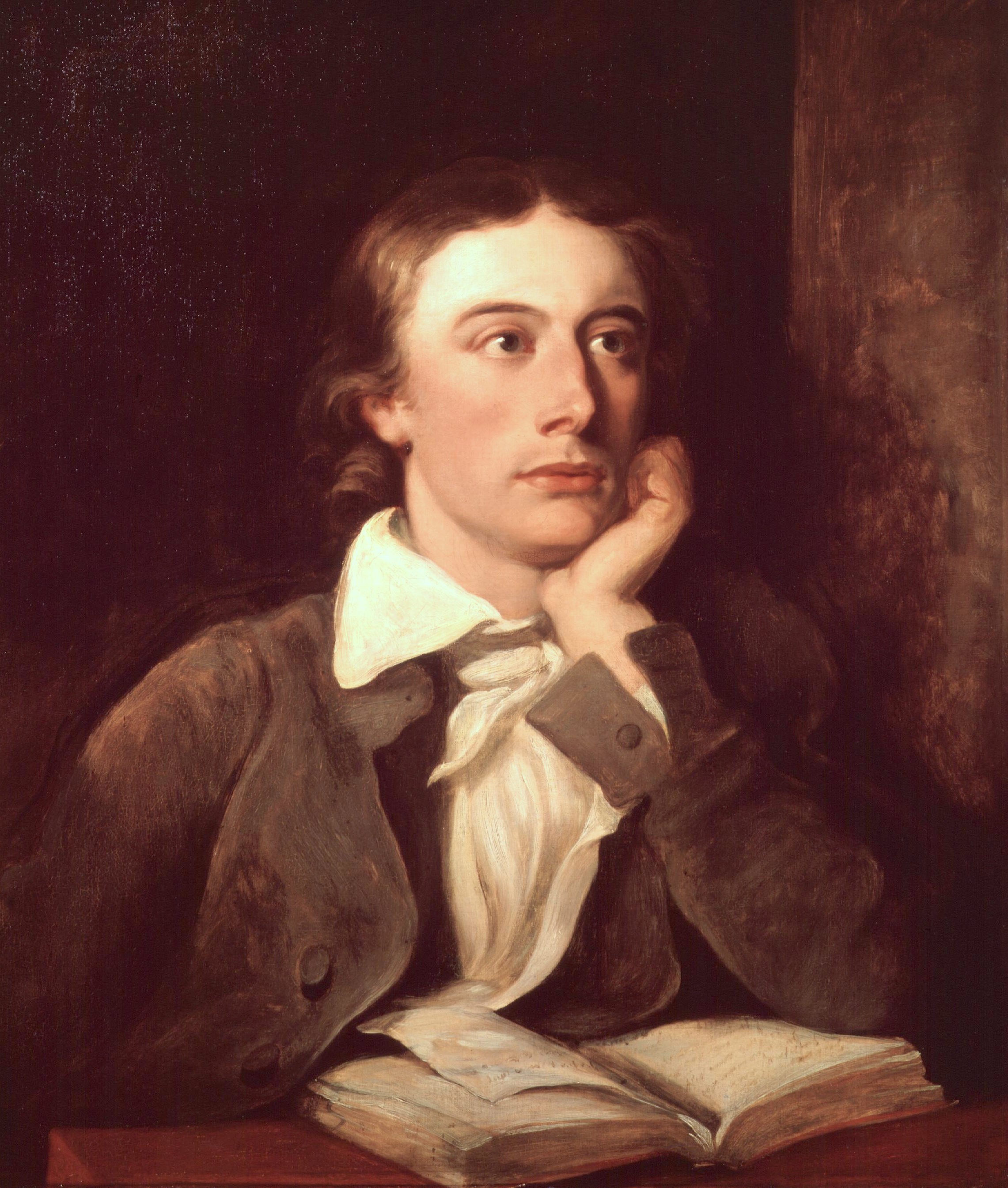Tender is the night. (ang.)
użyte przez F. Scotta Fitzgeralda w tytule jego powieści z 1934 roku.
Źródło: Oda do słowika (1819)
John Keats słynne cytaty
„Rzecz piękna jest radością wieczną.”
A thing of beauty is a joy for ever. (ang.)
Źródło: Endymion, w. 1 (1818)
„Myślę, że po śmierci będę wśród Angielskich Poetów.”
I think I shall be among the English Poets after my death. (ang.)
Źródło: list do George'a i Georgiany Keats (14 października 1818)
„Piękno jest prawdą, prawda pięknem!” – oto
Co wiesz na ziemi i co wiedzieć trzeba.”
Źródło: Oda do urny greckiej (1818–1819), tłum. Zenon Przesmycki (Miriam)
La) Belle dame sans merci. (fr.
tytuł ballady z 1819 roku, zapożyczenie z tytułu wierszowanego dialogu Alaina Chartiera, poety francuskiego.
„Tutaj spoczywa ten, którego imię zapisano na wodzie.”
Here lies one whose name was writ in water. (ang.)
Źródło: epitafium na grobie Keatsa (1821)
John Keats: Cytaty po angielsku
“And how they kist each other's tremulous eyes.”
Źródło: Bright Star: Love Letters and Poems of John Keats to Fanny Brawne
“Scenery is fine — but human nature is finer.”
Letter to Benjamin Bailey (March 13, 1818)
Letters (1817–1820)
Letter to John Taylor (February 27, 1818)
Letters (1817–1820)
Kontekst: In Poetry I have a few axioms, and you will see how far I am from their centre. I think Poetry should surprise by a fine excess and not by singularity — it should strike the reader as a wording of his own highest thoughts, and appear almost a remembrance — Its touches of Beauty should never be halfway thereby making the reader breathless instead of content: the rise, the progress, the setting of imagery should like the Sun come natural to him — shine over him and set soberly although in magnificence leaving him in the luxury of twilight — but it is easier to think what Poetry should be than to write it — and this leads me on to another axiom. That if Poetry comes not as naturally as the leaves to a tree it had better not come at all.
"Bright Star" (1819)
Kontekst: Bright star! would I were stedfast as thou art-
Not in lone splendour hung aloft the night
And watching with eternal lids apart,
Like nature's patient, sleepless Eremite,
The moving waters at their priestlike task
Of pure ablution round earth's human shores.
Letter to G. and F. Keats (December 21, 1817)
Letters (1817–1820)
“Can death be sleep, when life is but a dream,
And scenes of bliss pass as a phantom by?
---"On death”
Źródło: Complete Poems and Selected Letters
“I am sailing with thee through the dizzy sky!
How beautiful thou art!”
Źródło: Bright Star: Love Letters and Poems of John Keats to Fanny Brawne
“When it is moving on luxurious wings,
The soul is lost in pleasant smotherings.”
Źródło: Bright Star: Love Letters and Poems of John Keats to Fanny Brawne
Stanza 6
Poems (1820), Ode to a Nightingale
Źródło: Complete Poems and Selected Letters
Źródło: Bright Star: Love Letters and Poems of John Keats to Fanny Brawne
“Sweet are the pleasures that to verse belong,
And doubly sweet a brotherhood in song.”
"To George Felton Mathew" http://www.bartleby.com/126/11.html (November 1815)
Letter to Percy Bysshe Shelley (August 1820)
Letters (1817–1820)
“Music's golden tongue
Flatter'd to tears this aged man and poor.”
Stanza 3
Poems (1820), The Eve of St. Agnes
“As though a rose should shut and be a bud again.”
Stanza 27
Poems (1820), The Eve of St. Agnes
Letter to George and Georgiana Keats (March 19, 1819)
Letters (1817–1820)
“There is not a fiercer hell than the failure in a great object.”
Preface
Endymion (1818)
Letter to George Keats (September 21, 1819)
Letters (1817–1820)
Bk. II, l. 203
Hyperion: A Fragment (1819)
“Woman! when I behold thee flippant, vain,
Inconstant, childish, proud, and full of fancies.”
" Woman! When I Behold Thee Flippant, Vain http://www.bartleby.com/126/10.html", st. 1
Poems (1817)
Letter to Benjamin Bailey (November 22, 1817)
Letters (1817–1820)
“E’en like the passage of an angel’s tear
That falls through the clear ether silently.”
"Sonnet. To One Who Has Been Long in City Pent"
Poems (1817)
Sonnet, The Day is gone; reported in Bartlett's Familiar Quotations, 10th ed. (1919)
